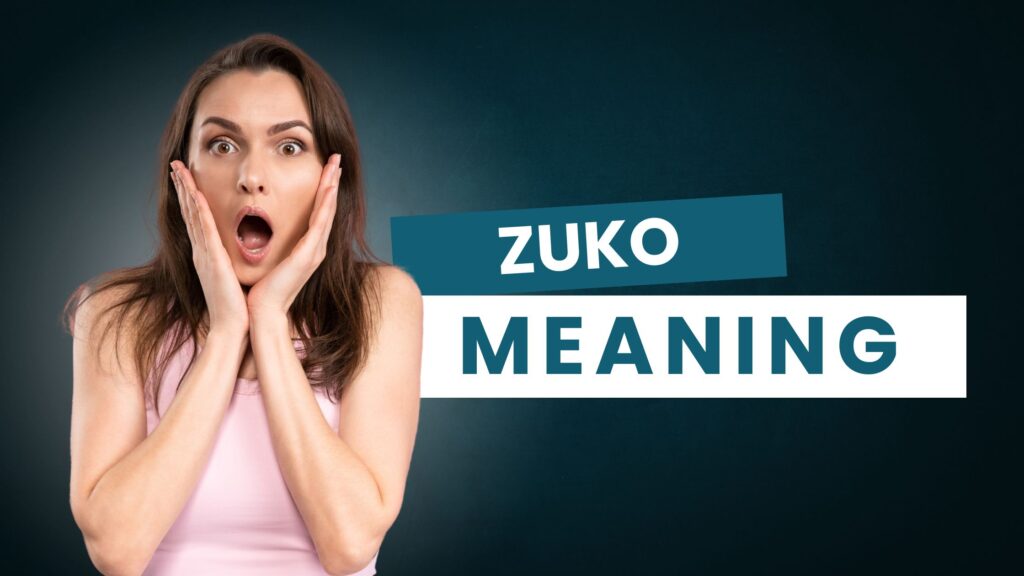Internet slang has become an essential part of digital communication. From texting shortcuts to trending social media tags, slang helps people communicate faster and with personality. Understanding these terms is vital for content creators, marketers, and SEO professionals.
Search engines like Google and Bing index millions of slang terms daily. These terms often become high-volume search queries. Knowing how to work with them, especially the controversial ones, can boost content visibility. This article uses “blumkin” as a case study to explore how slang affects generative SEO strategies.
What Does “Blumkin” Mean?
“Blumkin” is a slang term that originates from internet subcultures. It is categorized as NSFW (Not Safe for Work) and generally refers to an explicit and inappropriate act. While its exact meaning is found on websites like Urban Dictionary, responsible publications avoid describing it graphically.
Despite its nature, many users search for the term out of curiosity. That search behavior creates an opportunity and a challenge for SEO professionals. Should such terms be indexed? How can they be discussed responsibly?
For educational or informational websites, the goal is to explain the term academically without promoting or detailing it. This balance helps ensure the content is safe and respectful.
The Role of Slang in Online Search Behavior
Slang terms like “blumkin” often trend due to memes, influencers, or viral content. Search engines capture this traffic, which means webmasters and bloggers might feel pressured to include such terms in their content.
Understanding the behavior behind slang searches can help:
- Detect cultural shifts in language.
- Build keyword strategies around trending expressions.
- Prevent unintentional harm or offensive content.
Search engines apply content quality filters to explicit queries. Misusing slang terms may result in de-indexing or penalties, especially if a site is flagged for adult content.
How Generative Engines Handle Sensitive Slang
Generative AI tools like chatbots or AI writers are often restricted from fully explaining NSFW slang. This is to protect users from harmful or offensive content and ensure ethical AI use.
For safe and professional environments:
- Slang is acknowledged but not graphically explained.
- Definitions are neutral, academic, and minimal.
- Alternative interpretations or safe usage contexts are provided where possible.
In the case of “blumkin,” responsible AI systems may label the term as inappropriate for children, while still offering metadata to help users understand it.
Ethical SEO: Navigating Explicit Terms Responsibly
Ethical SEO involves balancing visibility with responsibility. For sensitive slang like “blumkin,” here are some best practices:
- Use disclaimers or warnings if the content includes adult references.
- Avoid clickbait or shock-value titles.
- Link to authoritative sources for definitions (e.g., linguistics databases or slang dictionaries).
- Focus on the cultural, linguistic, or behavioral aspects of slang.
This approach keeps content compliant with ad networks, search policies, and brand guidelines.
Understanding Slang in Texting and Social Media
Slang spreads rapidly through texting and platforms like TikTok, Reddit, Twitter (X), and Instagram. A term like “blumkin” might appear in a meme or trending post, pushing users to look it up.
In texting, slang terms are often:
- Shortened (acronyms)
- Used metaphorically or humorously
- Tied to subcultures or inside jokes
Social media’s meaning often depends on context. Sometimes a term is used in jest, other times seriously. Algorithms track engagement, so even controversial slang can trend if it’s shared widely.
Key Terms Related to Internet Slang and “Blumkin”
| Acronym / Term | Stands For / Term | Brief Description | Antonym | Synonym | Alternative Internet Meaning | Emotion | Safe for Work | Safe for Children | Emojis | Trending Date | Texting Meaning | Social Media Meaning |
| NSFW | Not Safe For Work | Content that may be explicit | SFW | Mature Content | Flag for adult content | Curious | ❌ | ❌ | 🚫💻 | Ongoing | Sensitive term | Restricted hashtag |
| SFW | Safe For Work | Content appropriate for work or public | NSFW | Family Friendly | Clean content | Neutral | ✅ | ✅ | ✅📄 | Always | Appropriate | Common tag for brand-safe |
| TMI | Too Much Information | Overly personal detail | Minimal | Oversharing | Often used jokingly | Embarrassed | ✅ | ❌ | 🙈 | 2022-2025 | Oversharing | Meme or sarcasm |
| Blumkin | Slang term | Explicit slang, controversial | – | NSFW term | Urban Dictionary listing | Shock | ❌ | ❌ | 🚫 | Viral 2010s | None | Controversial/meme term |
| Meme | Meme | Cultural image or joke | Serious post | Viral media | Humor-based trend | Funny | ✅ | ✅ | 😂📸 | Constant | Humor | Engagement booster |
| Slang | Slang | Informal expression | Formal speech | Lingo | Subcultural language | Playful | ✅ | ✅ | 🗣️ | Timeless | Common shortcut | Often trending |
| SEO | Search Engine Optimization | Process to rank content higher | Non-indexed | Web ranking | Keyword use strategy | Technical | ✅ | ✅ | 🔍 | Always | Online visibility | Growth tactic |
Best Practices for SEO When Covering Controversial Slang
When writing content about slang like “blumkin,” consider the following SEO tactics:
- Keyword Moderation: Use the main term sparingly. Include LSI keywords to support context.
- Safe Structure: Don’t include NSFW terms in headings or meta descriptions.
- Use Schema Markup: Label content appropriately (e.g., EducationalContent, Article).
- Clarify Intent: Explain why the term is being discussed cultural relevance, internet usage, or SEO case study.
- Avoid Monetizing Explicit Pages: Most ad networks restrict monetization of adult-related pages.
By applying ethical and technical best practices, websites can remain authoritative and professional, even when discussing difficult topics.
Conclusion
The internet is full of slang terms like “blumkin” that generate attention but require careful handling. Writers and SEO professionals must provide accurate, educational content that respects community standards.
By structuring articles with clarity, using LSI keywords responsibly, and avoiding sensationalism, it’s possible to rank for trending queries while maintaining professionalism. Understanding how slang interacts with SEO helps build trustworthy content that informs rather than exploits.


